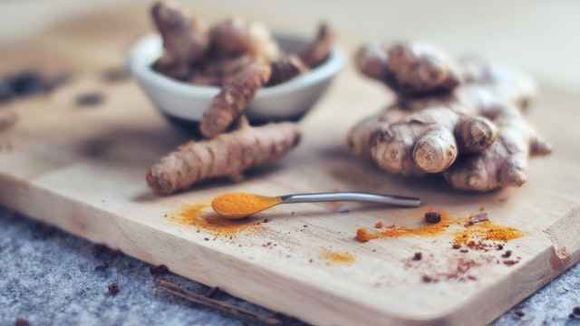The best diet for arthritis
In terms of composition, a diet rich in whole foods, including fruits, vegetables, fish, nuts and beans, but low-processed foods and little or no saturated fat, is great for the overall health. Such diet can help manage disease activity and control inflammation, which is typical for people with arthritis. It is possible that this diet is familiar to you, since these are the principles of the Mediterranean diet. It has proven to work and provides anti-inflammatory action to combat diseases. [ [ref. 1] ]
Studies confirm that eating foods that are usually part of the Mediterranean diet can help for:
- Lowering blood pressure
- Prevention of chronic conditions ranging from cancer to stroke
- Alleviating arthritis pain by reducing inflammation
- Benefit for both joints and heart provided by colagen, omega-3 and other food components
- Weight loss, which can reduce the pressure on the joints, and from there relieve joint pain

What the Mediterranean diet includes
Fish
Health authorities in various European countries, as well as in the USA recommend 100-150 grams of fish twice a week. Arthritis experts say it's better, and it's important to select wildly caught fish at every opportunity. Fish is a useful food for arthritis, as it provides omega-3 fatty acids fighting inflammation. Salmon, tuna, sardines, herring, anchovies, mussels and other cold-water fish are an appropriate choice. If you do not eat enough fish, you can take a dietary supplement, as optimal are 600 to 1000 mg. fish oil per day.
Nuts and seeds
Nuts are rich in monounsaturated fats, fighting inflammation. And despite being relatively high in fat and calories, studies have shown that eating nuts promotes weight loss as their protein, fiber and monounsaturated fats provide better satiety. Walnuts, pine nuts, pistachios and almonds for people having arthritis are recommended.
Fruits and vegetables
Fruits and vegetables are loaded with antioxidants. These powerful chemicals act as the body's natural defense system, helping to neutralize unstable molecules called free radicals that can damage cells. Research has shown that anthocyanins found in cherries and other red and purple fruits such as strawberries, raspberries, blueberries and blackberries have an anti-inflammatory effect.
Olive oil
Olive oil is rich in heart-beneficial fats, as well as oleocanthal, which has properties similar to nonsteroidal anti-inflammatory drugs. Oleocanthal inhibits the activity of COX enzymes, with a pharmacological action similar to ibuprofen, and it acts naturally. Extra virgin olive oil is recommended for seasoning dishes.
Whole-grain products
Whole grains contain a lot of fiber that can help you maintain a healthy weight. Some studies have also shown that foods rich in fiber can lower blood levels of CRP, a marker of inflammation. Here suitable are wholegrain flour, oatmeal, bulgur, brown rice and quinoa.
Herbs to combat arthritic pain
There are different types of arthritis, but they can all cause excruciating pain. Some natural remedies can help you alleviate mild symptoms, especially if you use them together with other treatment options.
Boswellia
Practitioners of traditional and alternative medicine use Boswellia serrata, also called incense, because of its anti-inflammatory properties. It is produced from the resin of Boswellia trees, which are native to India. Boswellia can help improve pain, function and stiffness of bones caused by osteoarthritis.
Cat's claw (Uncaria tomentosa)
Cat's claw is another anti-inflammatory herb that can reduce swelling in arthritis. It originates from the bark and root of a tropical vine that grows in South and Central America. It also acts as anti-inflammatory herb to strengthen the immune system, but can cause some side effects such as nausea and dizziness when taken in larger amounts.
Eucalyptus
Eucalyptus is an easily accessible herb that people use for a wide range of conditions. Extracts of eucalyptus leaves are present in local means for the treatment of arthritic pain. The leaves of the plant contain tanins, which can help reduce the swelling and pain associated with arthritis.
Turmeric (Curcuma longa L.)
Turmeric is a yellow powder made from a flowering plant. It gives taste and color to sweet and savoury dishes and teas, providing great health benefits.
Its main ingredient, curcumin, has proven anti-inflammatory properties. It has long played a role in traditional Ayurvedic and Chinese medicine. May help with osteoarthritis, rheumatoid arthritis and other arthritic conditions. [ref.2]
Aloe Vera
Aloe vera is one of the most commonly used herbs in alternative medicine. It is available in many forms, such as pills, powder, gels and as leaves. The advantages of aloe vera are in its anti-inflammatory effect and the absence of gastrointestinal disorders that nonsteroidal anti-inflammatory drugs (NSAIDs) can cause. [ref.3]










